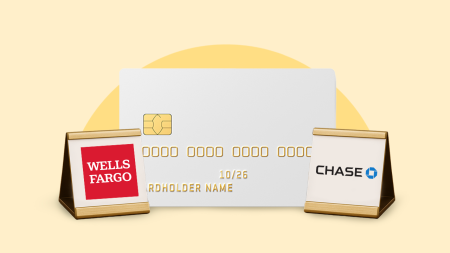All checking accounts might seem to be alike. But a business checking account may offer capabilities that aren’t available with a personal checking account, such as employee access controls, fraud protection tools and payment integrations.
Even if you want to open a secondary personal account only for business use, it may not be a good idea. Let’s explore why this is and how personal and business checking accounts stack up against each other.
Do you really need a business checking account?
If you own a company, a business bank account is likely the way to go to manage business finances. It looks more professional, offers features helpful for companies and can provide additional liability protection for certain business structures. Here’s a closer look at what makes business account necessary.
1. Easily track your business finances
You always want to keep your business expenses separate from your personal ones, says Pam Horack, certified financial planner at Pathfinder Planning in Lake Wylie, South Carolina. That way, you can have a clear record of all transactions.
Not separating a personal account and a sole proprietorship or a business registered as a “doing business as” (DBA) can cause you not to know if you’re actually making money or not, Horack adds.
2. Maintain personal liability protection
For some business structures, such as an LLC and corporation, it may be a requirement to have a separate business account to maintain personal liability protection. This is crucial because if someone sues your business, they won’t be able to go after your personal assets to fulfill a court judgment against you.
3. Simplify tax time
Combining your personal and business transactions in the same checking account can complicate the bookkeeping process and make tax time a nightmare. Imagine having to sift through all the transactions from the previous tax year to identify which ones apply to your business and allow you to claim business tax deductions. Business owner or not, your time is better spent on other things.
The difference between business and personal checking accounts
While business and personal checking accounts are both transactional accounts designed for day-to-day finances, business accounts have banking tools tailored for business needs. They may offer for free or an added fee:
- Bookkeeping, tax and payroll software integrations
- Cash flow monitoring
- Business credit score checks
- Digital debit cards and debit cards for non-account signers
- Business Zelle accounts
- Professional advice, such as financial analysis
- Cash back rewards for payroll and business spending
- Dedicated customer support for small businesses
- Invoicing and accounting features
- Fraud prevention tools specifically for businesses, such as enhanced fraudulent check detection
- Merchant services for accepting card payments
There are also some characteristics that are unique to business checking accounts:
- Free transactions may be limited
- Cash counting or coin order fees may apply
- Potentially higher monthly service fees that may be more difficult to waive
- Line of credit options
Can you open a personal checking account for your business?
LLCs and corporate business structures might not allow you to set up a personal checking account for your business. “While there are many legal entity structures for businesses, the sole proprietor is the only one that can be set up with an SSN [Social Security number] and, therefore, can open a personal checking account,” says Lynn Heitman, retired executive vice president, business banking segment leader at U.S. Bank.
How to make the switch from personal to business
To open a business account, you’ll likely need a federal Employer Identification Number (EIN). Depending on the bank, you may also need other business information.
This might include a Certificate of Good Standing and an assumed name certificate to certify the name the business operates under. You might also need to provide a business license, beneficial owner information if you own the business with someone else, and possibly a business plan.
Once you’ve gathered all the necessary documents, you can open a business checking account much in the same way as you would a personal account. This can be done by going to the bank’s website or a local branch.
How to pick the right business account
The right account can make managing cash flow easier, reduce fees and even offer perks that support your growth. Below is a list of features you can compare when researching business bank accounts.
- Account fees (maintenance, overdraft, excess transactions)
- Minimum balance and opening deposit requirements
- Sign-up bonuses and card rewards
- Transaction limits (deposit, transfers and payment limits)
- Mobile banking capabilities
- Integrations with third-party financial tools
- Account access permissions and user controls for employees
- Industry-specific perks (e.g., high cash deposit limit for retailers)
- Accounts for your business stage (e.g., low or no-fee accounts for startups)
Use the above list to determine which features are most important to you and make the most sense for your business. For example, if you’re just starting out, your biggest focus might be finding accounts with the lowest fees. Or if you make a lot of cash deposits, you might prioritize accounts with high deposit limits.
Bottom line
Whether you’re launching a startup or moving to the next stage in business, a business checking account keeps your finances organized, legitimizes your business and makes filing taxes much easier.
Once your account is open, you’ll want to comb through your personal bank statements and find your business transactions. Determine which clients, vendors, subscription services and bill payments you’ll need to update with your new bank information.
Be sure to periodically check your personal statements to catch business transactions that may have slipped through, such as those only charged quarterly or annually.
– Bankrate’s Lorraine Roberte contributed to an update of this story.
Read the full article here









